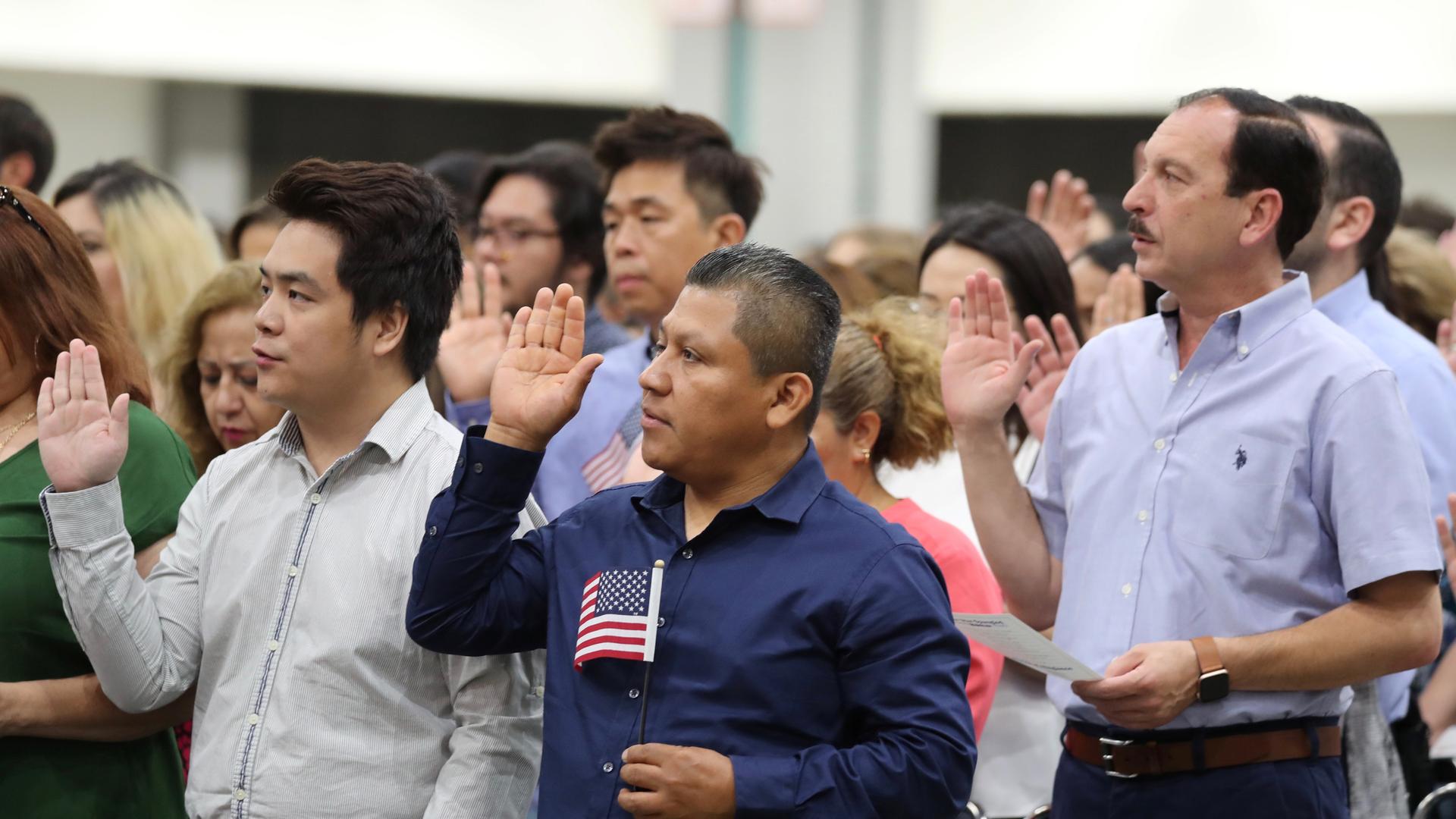A quiet announcement from the US Department of Justice has sent a wave of fear through many immigrants across the country. The DOJ is creating a new office to focus on people who may have misrepresented themselves while going through the citizenship process.
“We’ve been doing that, we’ve stepped that up 200% in the last three years, but it’s getting to the point where we’re getting enough referrals that it’s time to stand up a standalone unit,” John Bash, the US attorney for the Western District of Texas, said on Feb. 27, 2020, on Laura Ingram’s Fox News show. “And so, we have 20 to 30 lawyers dedicated to bringing justice to victims of child molestation, to victims of terrorism, war crimes and so forth.”
Related: Lawyers struggle to remotely represent asylum-seekers in ‘Remain in Mexico’ program
Ingram read him a statement from the ACLU that says the new unit reveals President Donald Trump’s systematic campaign against people of color, and asked Bash if that’s what he was doing — going after minorities and stripping them of citizenship for no reason.
“That is an outrageous statement that impugns the integrity of all the career attorneys at the DOJ that work on these issues.”
“That is an outrageous statement that impugns the integrity of all the career attorneys at the DOJ that work on these issues,” Bash responded.
But examining the records of naturalized citizens to look for fraud wasn’t a government priority until the Trump administration. Hundreds of thousands of immigrants become US citizens every year. In all, there are 20 million naturalized Americans, and very few have been stripped of citizenship.
Related: Trump administration retaliates against states trying to lessen use of immigrant detention
During the Obama administration, officials investigated on average about 50 immigrants a year for possible denaturalization. Cassandra Robertson, director of the Center for Professional Ethics at Case Western Reserve University’s School of Law in Ohio, said those cases came up as thousands of old immigration records were digitized and reviewed for the first time.
“Digitization made it easier to go back and look at the older records and see if there were errors or problems in earlier immigration files,” she said. “Under the Obama administration, the purpose of that was to look for national security threats.”
But the project’s first successful case — announced in 2018 — was against an Indian immigrant without a criminal record. A judge revoked Baljinder Singh’s citizenship because he used a different name when he first entered the country nearly three decades ago.
Still, last year the Trump administration sought to expand the project. It asked for $200 million to investigate roughly 900 American citizens, and digitize and review another 700,000 old immigration files.
“The people that they’ve been going after really don’t seem to have any connection to prior war crimes or threats to national security.”
“The people that they’ve been going after really don’t seem to have any connection to prior war crimes or threats to national security,” Robertson said.
Related: ICE deported a trans asylum-seeker. She was killed in El Salvador.
In New York, attorney Matthew Kolken said he’s seen an influx of about two dozen panicked naturalized citizens who’ve been notified of proceedings against them by the government. An old immigration document, newly digitized, shows they changed some detail they told officials long ago and never disclosed doing so. So, they’re charged with fraud — and fraud is grounds for being stripped of citizenship.
“Realistically, almost every single immigrant who’s ever applied for status with the United States has at one point or another failed to disclose something that’s material,” said Kolken, who’s been able to keep all his clients in the country legally. But he warns immigrants who want to apply for citizenship that now is not the best time.
Related: Nigerian couple ‘heartbroken’ as families face indefinite visa ban
Despite that, and the announcement of a new Justice Department unit focused on denaturalizations, Los Angeles resident Estefanía López Pérez is still urging her mother to go through the citizenship process.
“Having that naturalization, you’re ‘fully American,’ and having her have that would be a relief for everybody,” she said.Because it still just feels safer to be a citizen, especially now, when many noncitizens feel at risk of deportation, said López Pérez. She was brought to the US from El Salvador when she was 5, and became a naturalized citizen two years ago.
“I wanted to gain the right to vote,” said López Pérez.
In this coming election, 1 in 10 eligible voters are naturalized citizens. And López Pérez hopes those voters will be thinking about all the unanswered questions raised by the Trump administration’s new office focused on denaturalizations.
Related: Every 30 seconds, a young Latino in the US turns 18. Their votes count more than ever.
“I don’t know if they’re going to be only looking into cases of people that have committed crimes, and then looking into cases of people that may have inadvertently lied, or said something wrong, or maybe be involved in a political organization, or maybe have said something against the Trump administration on social media,” she said. “I don’t know where it will stop.”
The more questions she and her family have, López Pérez said, the more fearful they’ll be about the future.
